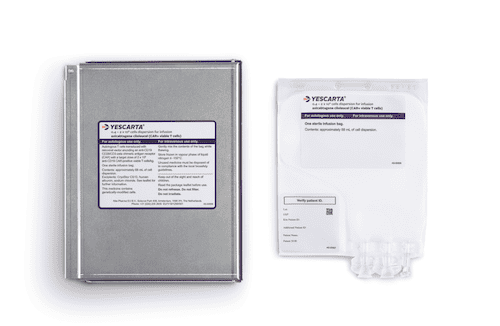
Gilead’s Yescarta and Merck/MSD’s Keytruda have been accepted by the Scottish Medicines Consortorium for use by NHS Scotland – while Roche’s Perjeta has faced rejection from the regulatory authority.
Last year, Gilead agreed a market access deal with NHS England for its groundbreaking CAR-T therapy Yescarta (axicabtagene ciloleucel), with the approval in Scotland extending the drug’s reach.
The SMC has approved Yescarta for the treatment for adults patients with certain types of lymphoma as a second-line therapy through its Patient and Clinician Engagement (PACE) process.
The regulatory authority said that Yescarta “could potentially offer long-term disease control and may be life extending for some patients”.
Also winning an approval is Merck/MSD’s blockbuster PD-1 drug Keytruda, for metastatic non-squamous non-small cell lung cancer. Merck/MSD’s drug was also approved through the PACE process, with patients and clinicians testifying to its benefit in the condition.
Lung cancer is the most common cause of death from cancer in both men and women in Scotland, with a survival rate of only 9.8% five years after diagnosis.
In August, Keytruda was also made available as a first-line treatment for patients with untreated advanced lung cancer in England via the Cancer Drugs Fund (CDF).
This latest approval will allow Keytruda to continue on its upwards trajectory – Evaluate Pharma has forecasted that it will be the top-selling drug worldwide in 2024 at $17bn predicted product sales.
Not-so-lucky was Roche’s Perjeta (pertuzumab), which has been handed a rejection by the SMC. Roche had been hoping to extend the drug’s use into the treatment of early stage prostate cancer – however, because of uncertainty around the evidence of its benefits in using it at the early stage of the pathway, the committee said it was unable to accept the drug.
The drug received approval from England’s cost-effectiveness watchdog NICE for the treatment of breast cancer in 2016, and has been key to driving sales for Roche as it faces increasing biosimilar competition of its older drugs.
Perjeta has patent protection until 2023 in Europe and 2024 in the US, so Roche will be hoping to continue to push the drug into new areas and indications, which may have been dented by the SMC’s rejection.




